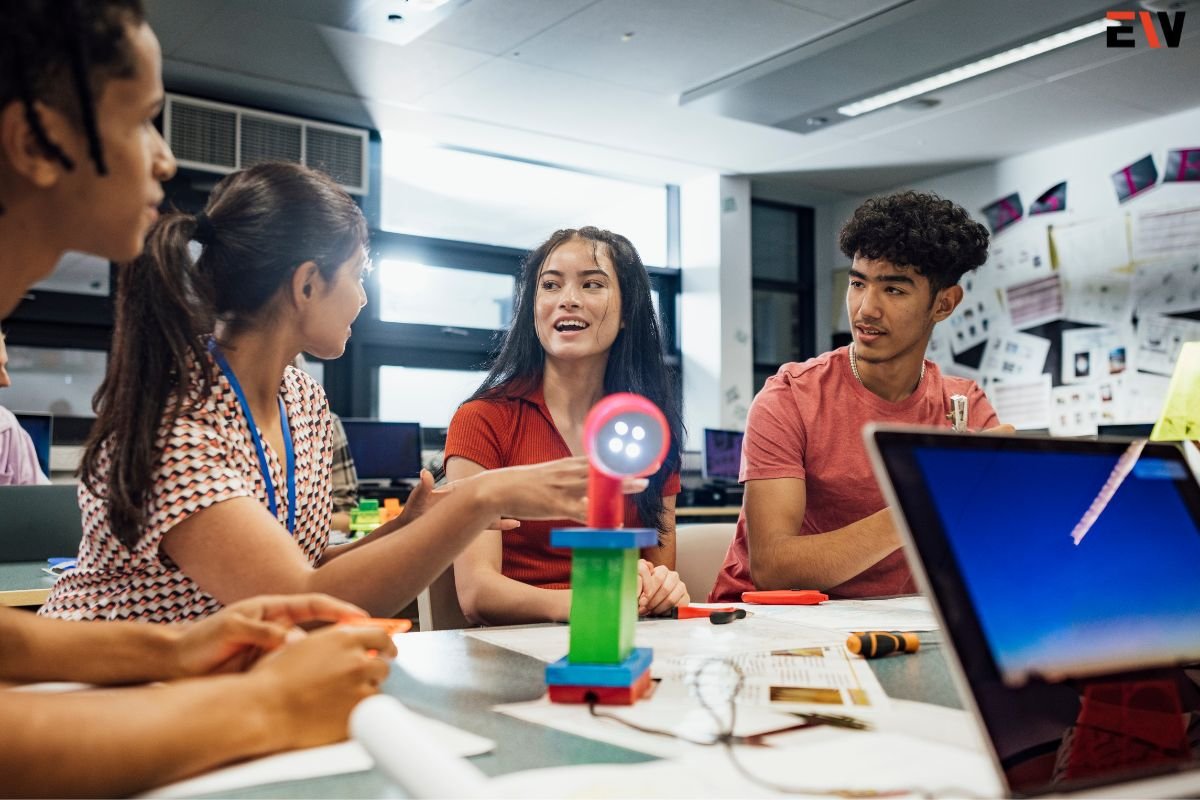In the evolving landscape of education, competency-based education (CBE) stands as a transformative approach that prioritizes mastery of skills and knowledge over traditional measures like time spent in the classroom. Rooted in the principles of personalized learning, flexibility, and outcome-driven instruction, CBE empowers learners to progress at their own pace, demonstrate proficiency through rigorous assessments, and acquire competencies essential for success in the 21st century. In this comprehensive guide, we’ll delve into the essence of competency-based education, explore its key principles and methodologies, and discuss its transformative impact on teaching and learning.
Understanding Competency-Based Education
Competency-based education (CBE) is an innovative pedagogical approach that emphasizes the acquisition of specific skills, knowledge, and abilities, known as competencies, rather than the completion of predetermined courses or credits. It shifts the focus from seat time to mastery, allowing learners to advance based on their demonstrated proficiency rather than traditional measures of progress.
Key Principles
1. Mastery-Based Learning
Learners progress at their own pace, mastering one competency before advancing to the next, ensuring depth of understanding and proficiency.
2. Personalization and Flexibility
CBE offers personalized learning pathways tailored to individual learner needs, preferences, and interests, accommodating diverse learning styles and abilities.
3. Competency-Based Assessment
Rigorous assessments are designed to measure mastery of specific competencies, providing timely feedback and opportunities for remediation or enrichment.
4. Student-Centered Instruction

Learners take ownership of their learning journey, setting goals, tracking progress, and actively engaging in self-directed learning activities.
Methodologies and Approaches
1. Competency Mapping
Identifying and defining clear, measurable competencies aligned with learning objectives and desired outcomes provides a roadmap for curriculum development and assessment design.
2. Flexible Learning Pathways
Offering diverse pathways to mastery, including online courses, experiential learning opportunities, and competency-based assessments, accommodates individual learner needs and preferences.
3. Authentic Assessments
Assessments are designed to reflect real-world tasks and challenges, allowing learners to demonstrate competency through performance-based assessments, projects, portfolios, and simulations.
4. Data-Driven Instruction
Utilizing learner data and analytics to inform instructional decisions, identify areas of strength and growth, and personalize learning experiences enhances effectiveness and efficiency in CBE.
What is its Transformative Impact?
1. Enhanced Student Engagement and Motivation
CBE empowers learners by providing autonomy, relevance, and choice in their learning experiences, fostering intrinsic motivation and a sense of ownership over their learning.
2. Improved Learning Outcomes
By focusing on mastery and proficiency, rather than time-based benchmarks, CBE ensures that learners develop deep understanding and competence in key areas, leading to higher achievement and retention.
3. Increased Equity and Access
CBE removes barriers to learning by providing flexible, personalized pathways that accommodate diverse learner needs, backgrounds, and abilities, promoting equity and inclusivity in education.
4. Alignment with Workforce Needs
CBE equips learners with the skills, knowledge, and competencies demanded by employers in the 21st-century workforce, enhancing employability and readiness for career success.
Implementing Competency-Based Education
1. Curriculum Design and Development

Designing competency-based curricula requires careful alignment of learning objectives, competencies, and assessments, leveraging backward design principles to ensure coherence and rigor.
2. Professional Development and Training
Educators require training and support in competency-based instructional practices, assessment design, data analysis, and technology integration to effectively implement CBE in the classroom.
3. Technology Integration
Leveraging educational technology tools and platforms facilitates personalized learning experiences, adaptive assessments, and data-driven instruction in CBE environments.
4. Stakeholder Engagement and Communication:
Engaging stakeholders, including educators, administrators, learners, parents, and community partners, in the design, implementation, and evaluation of CBE initiatives fosters buy-in, collaboration, and support.
Addressing Challenges and Considerations
1. Assessment Validity and Reliability
Ensuring the validity and reliability of competency-based assessments is crucial for maintaining the integrity and credibility of CBE programs. Educators must employ rigorous assessment strategies and standards to accurately measure learner proficiency and ensure consistency across assessments.
2. Faculty Support and Training
Providing ongoing professional development and support for educators is essential for the successful implementation of competency-based education. Educators may require training in pedagogical strategies, assessment design, technology integration, and data analysis to effectively facilitate CBE experiences.
3. Resource Allocation and Infrastructure
Allocating adequate resources, including time, funding, technology, and instructional materials, is necessary to support the implementation and sustainability of competency-based education initiatives. Schools and institutions must invest in infrastructure and support systems to accommodate personalized learning pathways and data-driven instruction.
4. Policy and Regulatory Considerations
Navigating policy and regulatory frameworks, including accreditation standards, state mandates, and federal regulations, presents challenges for institutions transitioning to competency-based education models. Collaboration with policymakers, accrediting bodies, and regulatory agencies is essential to ensure alignment and compliance with educational requirements.
Leveraging Interdisciplinary and Experiential Learning Opportunities
1. Interdisciplinary Integration
Integrating interdisciplinary learning experiences and competencies fosters connections across disciplines, promotes critical thinking and problem-solving skills, and prepares learners for interdisciplinary collaboration in real-world contexts.
2. Experiential Learning and Competency Development
Providing experiential learning opportunities, such as internships, service-learning projects, simulations, and project-based experiences, enhances competency development by allowing learners to apply theoretical knowledge in practical settings and gain real-world experience.
Evaluating and Iterating CBE Programs
1. Continuous Improvement and Evaluation
Implementing a culture of continuous improvement and evaluation is essential for refining and optimizing competency-based education programs over time. Regular assessment of program effectiveness, learner outcomes, and stakeholder feedback informs strategic decision-making and iterative adjustments.
2. Feedback Loops and Adaptation
Establishing feedback loops with stakeholders, including learners, educators, administrators, and employers, facilitates ongoing communication and collaboration to identify areas for improvement, address challenges, and adapt CBE programs to evolving needs and contexts.
Fostering Lifelong Learning and Career Readiness
1. Lifelong Learning Skills

Emphasizing lifelong learning skills, such as critical thinking, communication, collaboration, adaptability, and resilience, prepares learners to navigate a dynamic and rapidly changing world, fostering a growth mindset and a commitment to continuous personal and professional development.
2. Career Readiness and Employability
Equipping learners with the knowledge, skills, and competencies valued by employers enhances their career readiness and employability, empowering them to succeed in diverse fields and industries. CBE programs should align with workforce needs and industry standards to ensure graduates are prepared for career success.
Conclusion: Embracing the Promise of Competency-Based Education
Competency-based education holds immense promise for transforming teaching and learning, empowering learners to achieve mastery, pursue personalized pathways, and thrive in an increasingly complex and interconnected world. By addressing challenges, leveraging interdisciplinary opportunities, evaluating program effectiveness, and fostering lifelong learning and career readiness, educators can unlock the full potential to prepare learners for success in the 21st century and beyond. As schools, institutions, and policymakers continue to embrace and refine CBE approaches, their transformative impact will continue to shape the future of education and workforce development, ensuring equitable access and opportunities for all learners.










